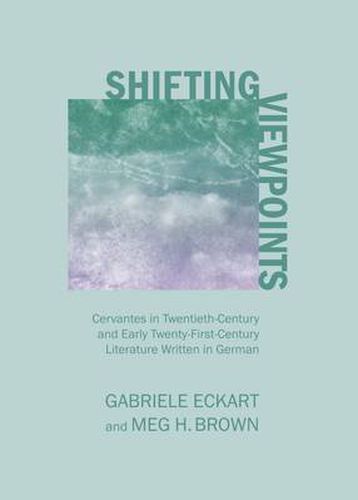Readings Newsletter
Become a Readings Member to make your shopping experience even easier.
Sign in or sign up for free!
You’re not far away from qualifying for FREE standard shipping within Australia
You’ve qualified for FREE standard shipping within Australia
The cart is loading…






This study shows that Cervantes’s works actively influenced the literature of a number of twentieth- and early twenty-first-century writers in Germany, Austria, and Switzerland. This time period was marked by numerous significant events, including World War I, the first attempts at democracy, the rise of the Nazis, World War II, the division of Germany, and the eventual reunification of Germany. Representations of characters created by Cervantes reflect the shifting viewpoints of monarchism, imperialism, communism, fascism, socialism, and capitalism. A number of German-speaking authors of this time creatively modify Don Quixote, vacillating between regarding Don Quixote as a fool or a hero. The emphasis here is on the question of how an author uses Cervantes’s Don Quixote and The Conversation of the Dogs to come to terms with his or her own preoccupations in a given socio-political context. This book explores literary works by German-speaking authors that engage in an intertextual play with a text written by Cervantes.
$9.00 standard shipping within Australia
FREE standard shipping within Australia for orders over $100.00
Express & International shipping calculated at checkout
This study shows that Cervantes’s works actively influenced the literature of a number of twentieth- and early twenty-first-century writers in Germany, Austria, and Switzerland. This time period was marked by numerous significant events, including World War I, the first attempts at democracy, the rise of the Nazis, World War II, the division of Germany, and the eventual reunification of Germany. Representations of characters created by Cervantes reflect the shifting viewpoints of monarchism, imperialism, communism, fascism, socialism, and capitalism. A number of German-speaking authors of this time creatively modify Don Quixote, vacillating between regarding Don Quixote as a fool or a hero. The emphasis here is on the question of how an author uses Cervantes’s Don Quixote and The Conversation of the Dogs to come to terms with his or her own preoccupations in a given socio-political context. This book explores literary works by German-speaking authors that engage in an intertextual play with a text written by Cervantes.